My column, Poetspeak in Saaranga magazine is an attempt to chronicle the story of contemporary Indian poetry in English by featuring a poet each month. The present situation is highly optimistic with many fresh and veteran voices leaving their mark on the stage. Though English writing in India began as a result of British imperialism, it has long been internalized as one of the lingua franca of the country. This has also led to the growth of a distinguished body of Indian poetry in English that has eventually marked its place in the global map of poetry.
The multilingualism that is prevalent in India, with English not being the mother language in most of the cases, has brought in a variety and richness from other Indian bhashas that have added to the charm of English writings by Indians. It is worth mentioning here that many of the Indian poets writing in English are either bilingual/ multilingual poets or translators, negotiating constantly between their mother tongue, and the acquired languages of English and other Indian languages. This makes the Indian writings in English unique in nature.
This month, the featured poet is Naina Dey, a poet who aptly fits into this category. She is also an academician, an educator, and a translator and moves between each of her roles with equal elan and gravitas. As a translator, she has already published an important translation of the iconic Bengali children’s literature, Goopy Gain, Bagha Bain apart from an anthology of short stories from Bengali. She also has two published volumes of poems. This column is going to present a review of her latest anthology of poems, the Homing Pigeons and sundry stuff, published by Authors Press in 2020.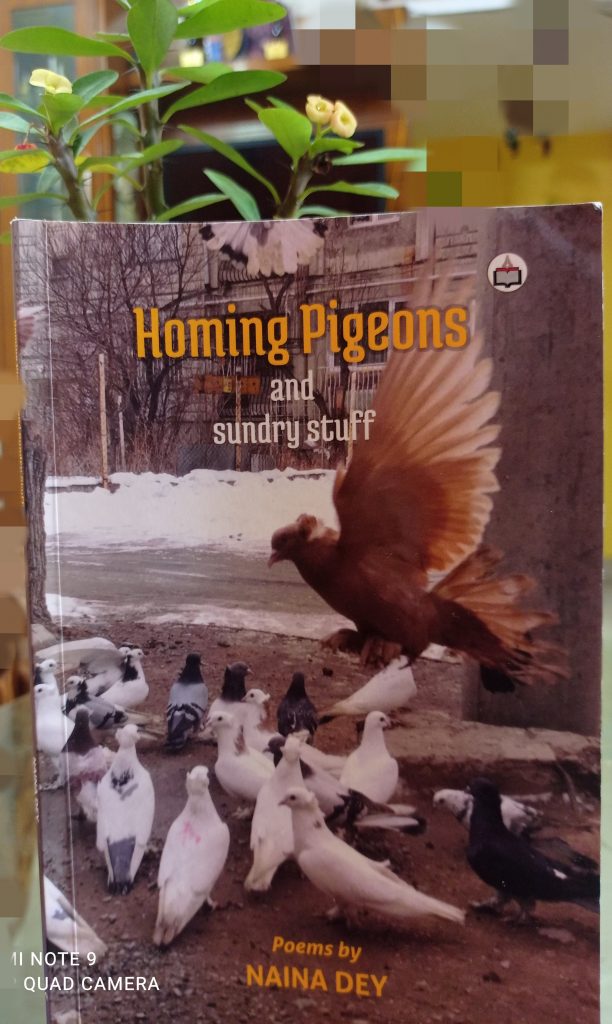
The Homing Pigeons and sundry stuff is a slim volume of twenty-eight poems by Naina Dey, divided into four sections. The first section, ‘Homing Pigeons and sundry stuff’ is also the longest section with fourteen poems included in it. The next two sections, ‘Poems on the Pandemic’, and ‘In Love with Love’ contain just two poems each, followed by the last section, ‘Unholy Thoughts’ with a collection of ten poems. The anthology contains both micro poems and long poems, providing the readers with a diversity of content, style, and form. Most of the poems are either observations or expressions of lived experiences of urban existence and its travails. The personal voice of the poet blends effortlessly with the social concerns and several poems have a woman as the poetic persona. In the first poem, ‘Homing Pigeons’ the poet plays with the word, ‘homing’ and somewhere along the lines, the cooped-up pigeons become one with the kitchen bound women –
I wonder what they do
These pigeons inside their coop
Make omlettes perhaps?
While I wish I had wings that clapped
Even for a day. (13)
The legacy that began with Kamala Das’ poems, particularly ‘An Introduction’, has continued even with the later Indian women poets writing in English. Their unapologetic stand regarding their choices and defiance of social expectations has been well documented in their poetry too. In this anthology, several poems reflect these concerns. The poem ‘Subaltern’ is a powerful poem that represents the modern woman’s negotiation with society and religion.
How many children?
Asked the devotee
None
Said I
Married? She asked again
Her eyes wandering over my forehead (24).
This conversation, which seems to be innocuous yet extremely interfering, gets a postmodernist twist towards the end of the poem –
Finally turning to the dark goddess I wondered
If I was the subaltern of the new millennium
In anger I roundly confront her
How many children?
Is your job full time?
Kali grinned and stuck out her tongue in reply. (24)
The last line ties the devotee and the goddess in a bond of camaraderie, both women, in defiance of the conventions.
In another poem, titled ‘Feminism’, there is a similar concern but laced with a subtle sarcasm towards the normative idea of womanhood – “ They kill you/ With their praise of a colleague’s chastity/ Or another’s culinary skills…” (47). The woman in her also speaks out against the unseen scars, scars that are made by unwanted, furtive touches, an assault against the dignity of the woman – ‘Scars made by love’, ‘Scars of hate’ or ‘Scars of hidden shame/ Furtive obscene fingers probing virgin crevices’(46).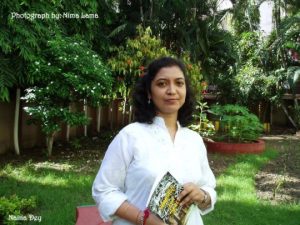
The ecocritical concern too makes a space in this anthology. In the poem ‘Homeless’ ‘the lone crow sits atop still in hope’ becomes a poignant symbol of the eco-apartheid practices of human beings and complete unconcern for nature as they keep cutting down trees in the name of development. Even here there is a parallel drawn between the trees and a woman’s existence –
The third was a gulmohar the shape of a woman dancing
It was not dead yet
It clung on to life as its branches clung on to a few leaves” (23).
Both the woman and the tree, ironically, become identified as objects whose lives are disposable to suit the fancy of humankind. In another poem, in the urban landscape of modern existence, one arm of the ‘Rainbow’ plunges “suicidal/ Behind the skyrises, the hospital” (20). The poem is an apt representation of the contemporary lifestyle, where, to capture the rainbow in one’s mobile phone, takes precedence over actual appreciation of this natural beauty. The poet depicts how technology has made inroads into people’s aesthetic sensibilities as well.
The micro poems included in this anthology are sharp, witty, and at times sarcastic too. Naina Dey presents her readers with two sets of micro poems here – one on Covid-19 and the other on love. In both sets, their depth of meaning despite the economy of words is worth noticing. Through these short 4-lined or 3-lined poems the poet has made a brilliant representation of the pandemic situation.
In a queue
A meter apart
You pretend ignorance
Love lost over the last loaf. (30)
Or
It is a good time to hide
Behind emojis
Or fake emotions. (31)
These poems represent how, within a minimalistic space, the poet has captured the changes that Covid-19 had brought about in our lives.
The micro poems on ‘Love’ have the same tongue-in-cheek sarcasm that forces the readers to ponder – “I am not in Love with you/ I am in love/ with your love (35). The new-normal of pandemic and love come together in the micro poem –
I try out new masks each day
To make myself attractive
It was easier with my face
It concealed better (36).
The masked face and the face masks become two sides of a single coin with the individual trying to hide her true feelings.
Poems of Naina Dey would force you to think, ruminate and then move ahead. This anthology is for readers who enjoy the cerebral. Though the Dedication of the anthology says, ‘for my young readers’, the poems themselves transcend any limitation of age and can be enjoyed by readers of all ages.
*




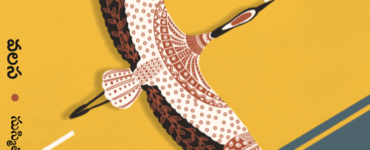

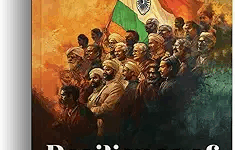
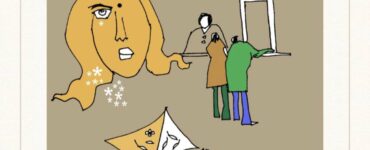
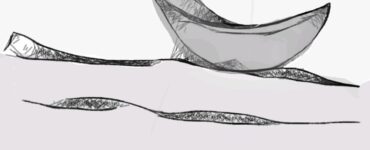
Add comment